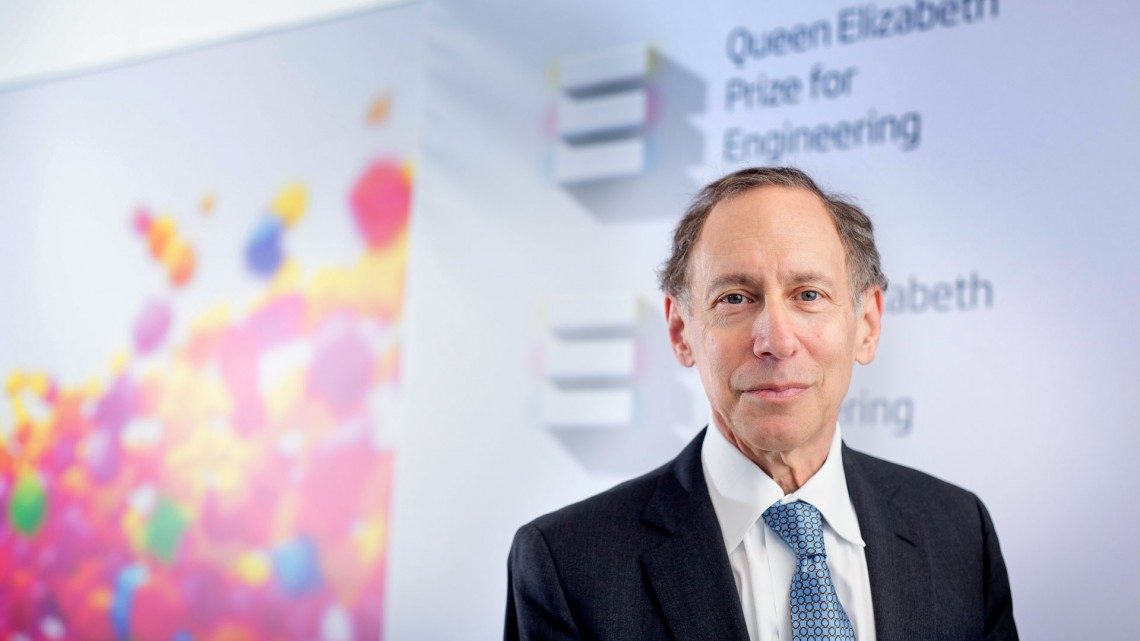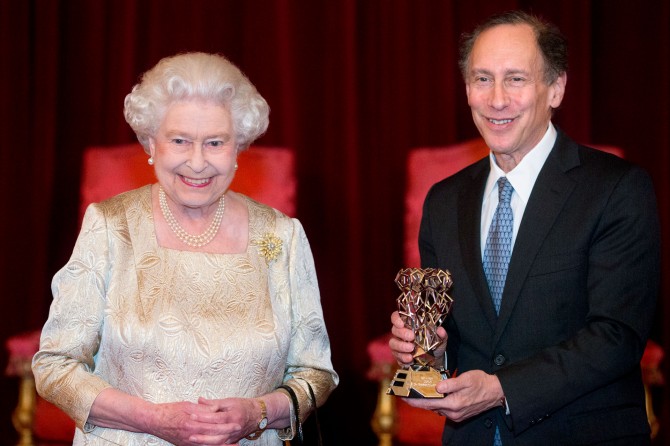
Robert S. Langer ’70 leads the largest academic biomedical engineering laboratory in the U.S. and is one of 12 Institute Professors at MIT.
From Cornell fundamentals to a world-renowned career
By Laura Hunsinger
Robert S. Langer ’70 has made research discoveries that have sparked breakthroughs in biomedical technology universally described as revolutionary.
Langer earned his bachelor’s in chemical engineering from Cornell and his Sc.D. at the Massachusetts Institute of Technology (MIT). At age 43, Langer became the youngest person ever elected to all three American science academies. He is one of four living individuals to have received both the U.S. National Medal of Science and the National Medal of Technology and Innovation.
In 2015 alone, he received accolades from spheres as diverse as the hill and the crown: He was named Cornell Entrepreneur of the Year and received the Queen Elizabeth Prize for Engineering, the world’s largest engineering prize (sometimes referred to as “the Nobel Prize for engineering”).
Today, Langer leads the largest academic biomedical engineering laboratory in the U.S. and is one of 12 Institute Professors at MIT, the highest honor awarded to MIT faculty.
His research and teaching rests on a bedrock of Cornell instruction.
“I really learned the fundamentals of chemical engineering from great teachers like Peter Harriott ’49, George Scheele, Bob Finn ’42, Ray Thorpe, M.S. ’47, and others,” Langer says. “It wasn’t easy. My junior year I had five eight o’clock classes, including Saturday organic chemistry. But learning these fundamentals served me incredibly well going to grad school and through my entire career.”
Langer has garnered nearly every top honor in engineering and chemistry for his research in biomedical technology and the development of controlled drug delivery. His work has led to:
- new treatments for cancer, heart disease, alcoholism, narcotic addiction, diabetes and other ailments;
- transdermal systems that dispense drugs to or extract analytes from the body through the skin;
- regenerative medicine by producing artificial skin for patients with severe burns or skin ulcers; and
- production of biodegradable materials for sealants and for the prevention of surgical adhesions.
Langer admires the “great teachers, scientists and engineers” at Cornell and sees the mission of research universities as twofold: “to make discoveries, create inventions and understand principles that will change the world and make it a better place; and in so doing, to train students and postdocs who will be the leaders of the future.”
Holding more than 1,360 patents and authoring nearly 1,500 articles, Langer inspires a generation of future research leaders across the world, including at Cornell.
In 2020, Shaoyi Jiang, Ph.D. ’93, a professor of chemical engineering at the University of Washington, was named the first Robert S. Langer ’70 Family and Friends Professor at Cornell, and will join the Nancy E. and Peter C. Meinig School of Biomedical Engineering. His wife, Qiuming Yu, Ph.D. ’95, also will join the Cornell faculty in the Robert Frederick Smith School of Chemical and Biomolecular Engineering.
This story originally appeared in the online-only spring 2020 issue of Ezra magazine.
Media Contact
Get Cornell news delivered right to your inbox.
Subscribe


